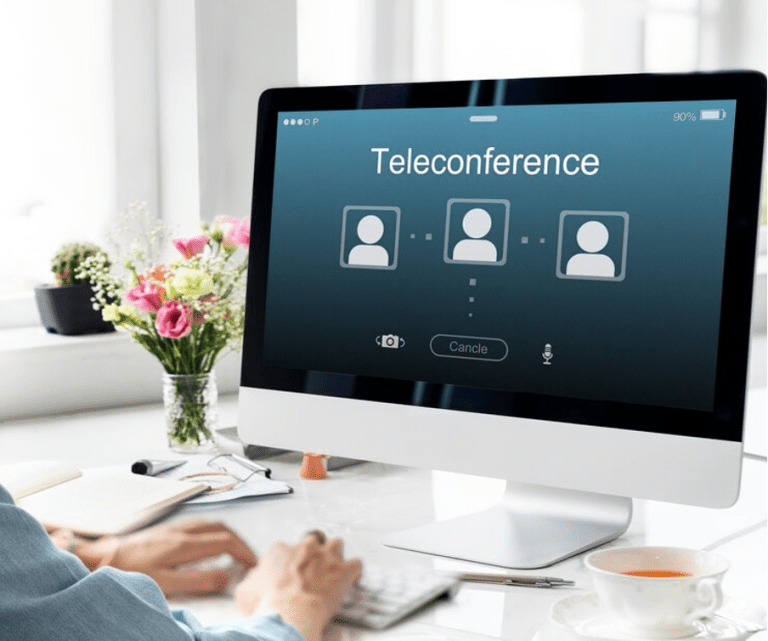As an HR director or professional, you understand the power of effective communication in the workplace. Open and honest dialogue fuels collaboration, improves problem-solving, and ultimately drives success. But fostering that kind of environment can feel like an ongoing juggling act. Silos form, information gets lost in the shuffle, and sometimes, crucial conversations simply never happen.
Here’s the good news: there are a range of tools at your disposal to elevate your workplace dialogue and transform those sometimes-stilted interactions into vibrant exchanges. Here, you’ll discover some innovative tech solutions you can consider.
Feedback and Survey Tools
Feedback is the lifeblood of improvement, and modern tools have transformed this process into a seamless and ongoing dialogue. These platforms allow for the anonymous collection of feedback, making it easier for employees to share honest insights about their workplace experiences.
As an HR professional, utilizing top employee feedback platforms to conduct regular surveys can provide you with a pulse on the organization’s health, employee satisfaction, and areas requiring attention. Importantly, it’s not just about collecting feedback but also acting on it, demonstrating to employees that their voices are heard and valued.
Virtual Collaboration Platforms
In the age of remote and hybrid work arrangements, virtual collaboration platforms have become indispensable for maintaining open lines of communication. These platforms offer robust features that facilitate the following:
- Real-time conversations
- File sharing
- Project management
All these allow employees to connect from anywhere, thereby breaking down geographical barriers and promoting inclusivity. However, it’s crucial to acknowledge the challenges these platforms can introduce, such as digital overload and the potential for miscommunication in text-based interactions.
To mitigate these challenges, organizations can establish clear guidelines on communication etiquette, encourage regular “digital detox” periods to reduce overload, and provide training on effective digital communication. Ensuring that all team members have access to and are proficient in using these tools can also help minimize misunderstandings and foster a more inclusive environment.
Anonymous Messaging and Suggestion Boxes
To tackle tough dialogues head-on, organizations must go beyond traditional feedback mechanisms like anonymous messaging and suggestion box tools. While these platforms offer a critical safe space for employees to share their thoughts without fear of repercussions or judgment, their full potential is realized only when there is a robust mechanism in place for constructive follow-up and action on the feedback received.
Transforming these platforms from mere outlets for venting to venues for positive change and constructive dialogue necessitates the establishment of clear processes for reviewing, addressing, and communicating actions taken in response to the feedback. This might include setting up a dedicated team or task force responsible for analyzing feedback, prioritizing issues, and developing comprehensive action plans.
Moreover, updating the workforce regularly about feedback status and changes shows transparency and commitment to improvement. It builds trust and encourages honest participation. This approach not only addresses challenging dialogues effectively but also promotes a culture of open communication and growth.
Town Hall Meetings and Fireside Chats
While digital tools are invaluable, face-to-face interactions remain essential for building genuine connections, effective communication, and fostering open dialogue. Town hall meetings and fireside chats provide a forum for employees to engage directly with leadership, ask questions, and share their perspectives.
Leverage virtual conferencing tools or organize in-person gatherings (when possible) to host these events regularly. Encourage employees to submit questions or topics for discussion in advance, and ensure that the atmosphere is inclusive and non-judgmental. These events not only facilitate open dialogue but also demonstrate your commitment to transparency and active listening.
Mentorship and Coaching Programs
Mentorship and coaching programs are pivotal in fostering a culture of open dialogue and continuous personal development within organizations. By pairing experienced professionals with those seeking guidance, these initiatives facilitate meaningful exchanges where employees can discuss challenges, explore opportunities, and receive constructive feedback.
The success of these programs often depends on the compatibility between mentors and mentees, as well as the alignment of these relationships with both personal and organizational goals. To address these challenges, HR professionals should implement structured matching processes that consider the professional backgrounds, personal interests, and development objectives of both parties.
Furthermore, setting clear expectations and providing ongoing support for these relationships are crucial to ensure they remain productive and beneficial to all involved. This not only enhances the dialogues within the mentorship and coaching sessions but also contributes significantly to the professional growth of employees, aiding in retention and fostering a supportive workplace culture.
Social Recognition Platforms
Recognition plays a critical role in motivating employees and reinforcing desired behaviors. Social recognition platforms provide a public space for acknowledging achievements, celebrating milestones, and appreciating the efforts of colleagues. These platforms can significantly impact morale and engagement by:
- Encouraging Peer-to-Peer Recognition: Allowing employees to recognize each other’s efforts and successes fosters a supportive environment where people feel valued by their peers, not just by management. This peer recognition helps build a strong sense of community and belonging within the organization.
- Creating a Culture of Visibility: By highlighting achievements across different levels and departments, these platforms ensure that contributions do not go unnoticed. This visibility promotes a culture of appreciation and can inspire others to excel, knowing their efforts will be recognized.
Integrating such platforms into your recognition strategy can help you create a positive feedback loop that boosts morale and encourages a culture of appreciation.
Performance Management Systems
Performance management has evolved to continuous dialogue about goals, achievements, and areas for improvement. Modern tools facilitate these discussions, aligning individual and organizational objectives.
To enhance this process, it’s essential to train managers in giving constructive, actionable feedback. This approach ensures that performance conversations are productive and focused on growth, thereby fostering a culture of continuous improvement and open dialogue.
Conclusion
Fostering open and collaborative dialogue in the workplace is crucial for creating a thriving and innovative organizational culture. By leveraging the right tools and embracing a mindset of transparency, inclusivity, and active listening, you can empower your employees to share their insights, concerns, and ideas freely. Invest in these tools, and watch as your organization transforms into a hub of open communication, where ideas flow freely, and everyone’s voice is heard and valued.
Justin Smith is a digital marketing expert and enjoys writing articles about business-related topics. During his free time, he loves fishing with his friends. He is based in Los Angeles, California.














